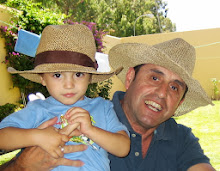skip to main |
skip to sidebar
(Workshop Meetings Feb 2nd and 3rd). Don't you sometimes have the impression that our life seems to be moving too fast and we are always in a hurry? Our modern way of living assumes that faster is better, but many people don't agree with this idea and that is why they have started a movement called "Slow Down". We've probably heard about "slow eating" and also about "slow cities", but you can find much more about this interesting movement in the following link.
(Workshop Meetings Jan 26th and 27th. Glossary).
It is true that days have twenty-four hours for everybody, but what we achieve in that time varies significantly from person to person. Some people seem to be able to control their time while others are actually driven by the time. Some of us tend to find days too short to fit in as many things as we would like to do and we are always in a hurry. On the other hand other people manage to even find some time every day to relax and enjoy life. What is the secret of good time management?
 (Workshop Meetings Jan 19th & 20th. Glossary) Let's start by reading this poem called 'Please, listen'.
Although some people actually think that hearing and listening are two words to define just one and the same concept, the truth is that there is a long stretch to go from hearing to listening, a distance that we should all start covering at some time in our life if we really want to improve our relationship with the people around us. For a brief definition of both terms click here.
(Workshop Meetings Jan 19th & 20th. Glossary) Let's start by reading this poem called 'Please, listen'.
Although some people actually think that hearing and listening are two words to define just one and the same concept, the truth is that there is a long stretch to go from hearing to listening, a distance that we should all start covering at some time in our life if we really want to improve our relationship with the people around us. For a brief definition of both terms click here.
I found this slideshow with plenty of information about listening. Funny, did you notice that in both places they use exactly the same definitions for hearing and listening? I wonder who copied who?
Have you ever thought that you might be just hearing instead of listening most of the time? How good is your listening?
If you want to go deeply in the subject: The humanistic psychologist Carl Rogers put a lot of emphasis on active and -later in his life- receptive listening as a powerful strategy to use in therapy. Here is the text of a conference he gave on communication in 1964.
Eugene Glendin, who developed the therapeutic process called 'Focusing', maintained that there are only two reasons to interrupt the person who speaks: to express that you are understanding what he/she is saying or to ask for a clarification of something that you did not understand.



